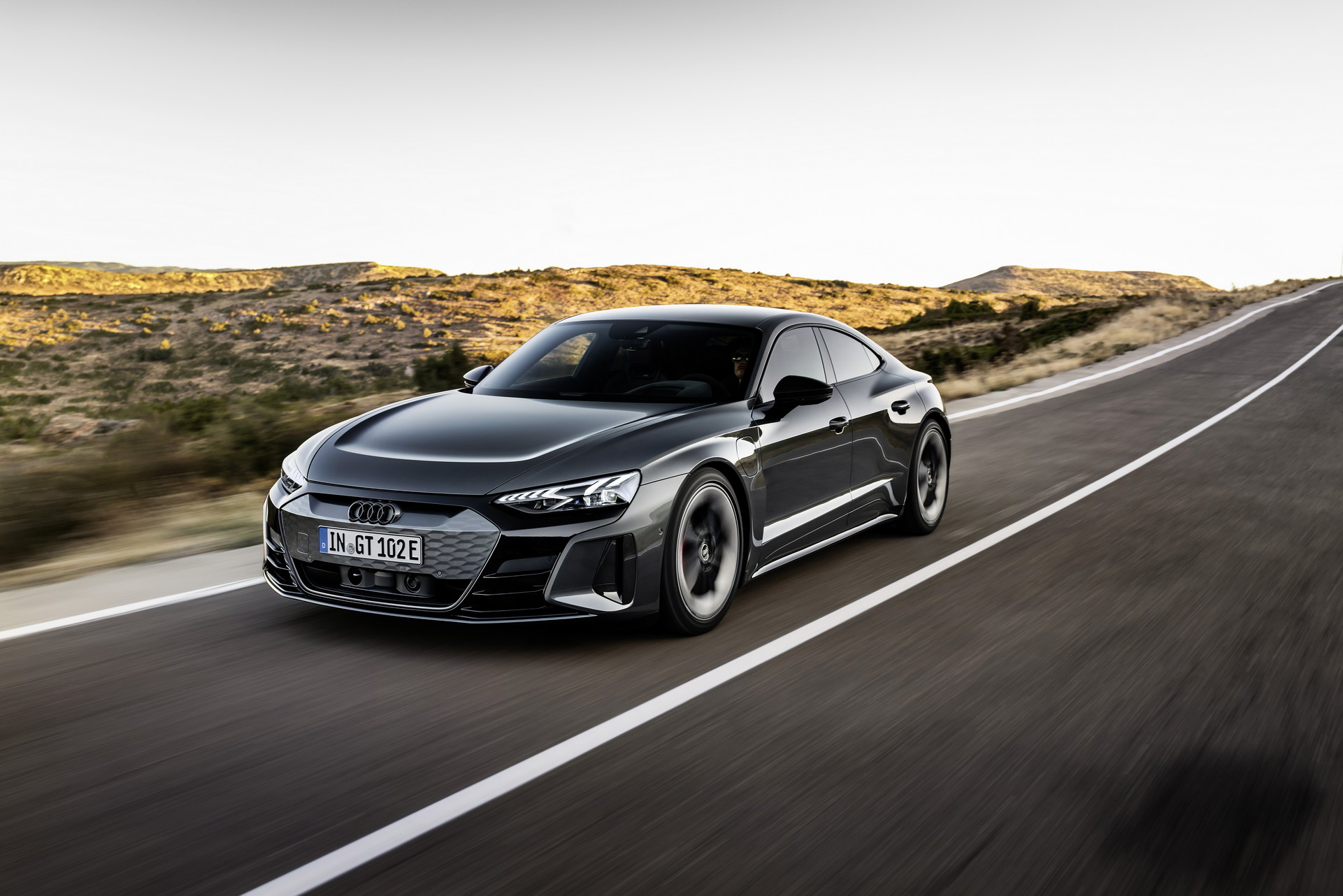With both based on the same platform, it’s easy to write off the Audi RS e-tron GT and Porsche Taycan Turbo as simple reskins of each other. But, with several changes to each car, it’s not as simple as that. So, to find out which is best, Carwow’s Mat Watson decided to pit the two head to head.
There’s no getting away from the fact that there are many shared components between the two cars, as they sport the same battery, motor, and architecture. The Porsche has a starting price of £70,690 in the UK, but that’s for the rear-wheel drive, entry-level model. Audi e-Tron GT starts just under £81,000, rising to £112,000 for the RS. Like for like though, the Taycan is more expensive, with the Turbo — the RS’s equal — coming in at £116,000.
One of the first differences is found in their real-world range, although that could, at least partially, be down to driving style. Even though they both have 84kWh battery packs, the Audi gives a range of about 218 miles (349 km), while the Porsche only has around 183 miles (293 km) of range.
Read: Audi RS E-Tron GT Challenge And Porsche Taycan Turbo Face-Off Against
Both EVs offer 366 liters of room in the trunk and 81 liters of space in the frunk. They both feature similar side profiles, although the Porsche has a low-slung bonnet while Audi has grafted on their trademark big-grille look. Both cars have taillights that span the length of the rear, but the e-tron GT includes Audi’s light patterns on locking and unlocking, which raises the cool factor just a tad.
Stepping into these two cars, you are welcomed by sports seats up front and surprisingly spacious, for sporty cars, rear seats. Compared to the Porsche Taycan Turbo, the Audi RS e-tron GT has the upper hand in terms of interior usability. It has carbon fiber accents, easy-to-use software and equipment, premium materials, a solid construction, and marginally better rear-seat headroom. Plus, you don’t have to operate the climate controls through a touch screen, as you do in the minimalist Taycan.
See: See How Does The Mercedes EQS Stack Up Against The Audi E-Tron GT, Porsche Taycan, And Tesla Model S
The 0-60 mph (0-96 km/h) runs reveals that the RS e-tron GT outperforms its claimed figure of 3.3 seconds with a result of 3.09 seconds. The Taycan Turbo meanwhile took 4.1 seconds, despite the advertised time of 3.2 seconds. However, Watson notes that that’s likely due to the fact that, at the time of the test, the Taycan was just lower on battery, which meant the Porsche software would have automatically throttled the power available on launch.
The overall verdict, though, is that because Porsche is, naturally, a sports car manufacturer, the Taycan was designed to prioritize handling and feel athletic on the road. On the other hand, the Audi is less sporty, smoother, and more comfortable to drive on the road on a daily basis, more in line with a grand tourer. The Audi’s characteristics lend themselves to the heavier platform that is inevitable with an EV, so the win goes the way of the four rings.






